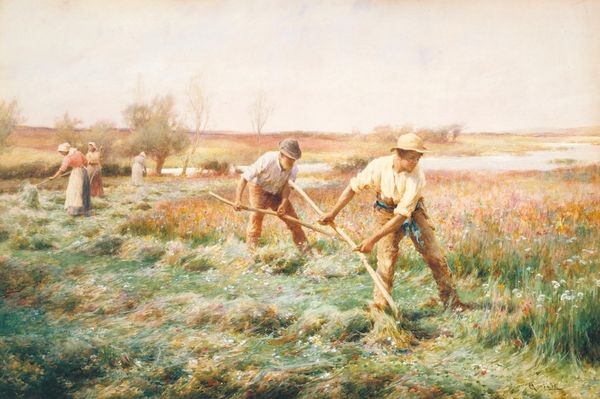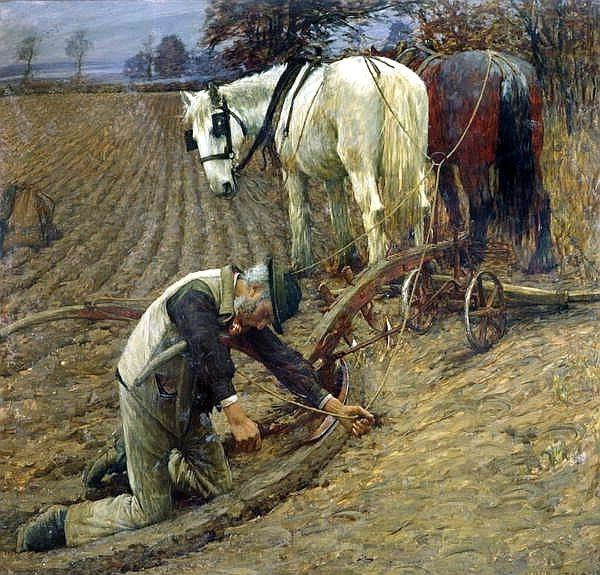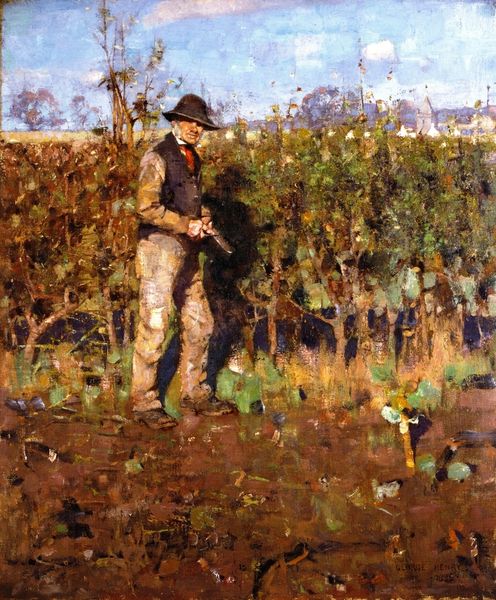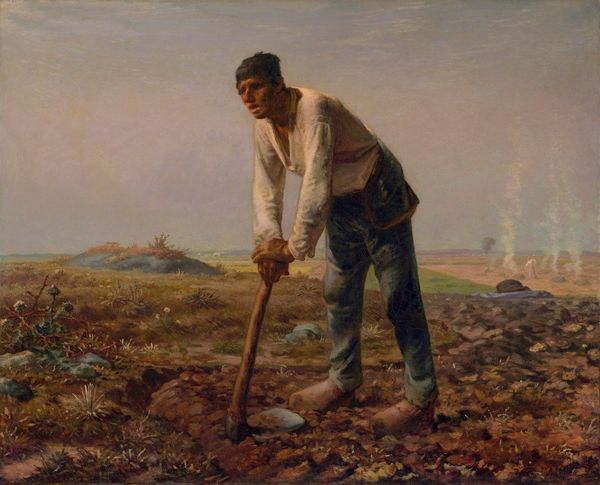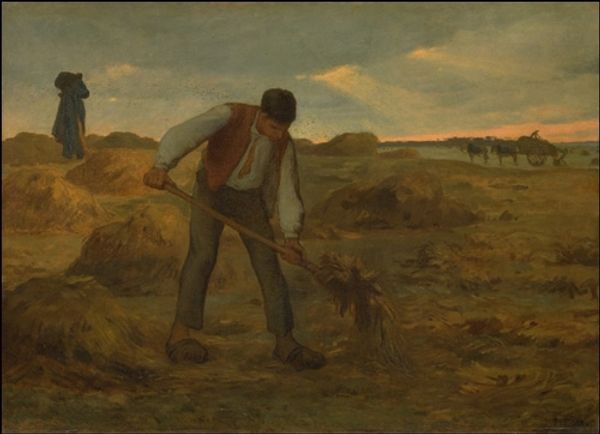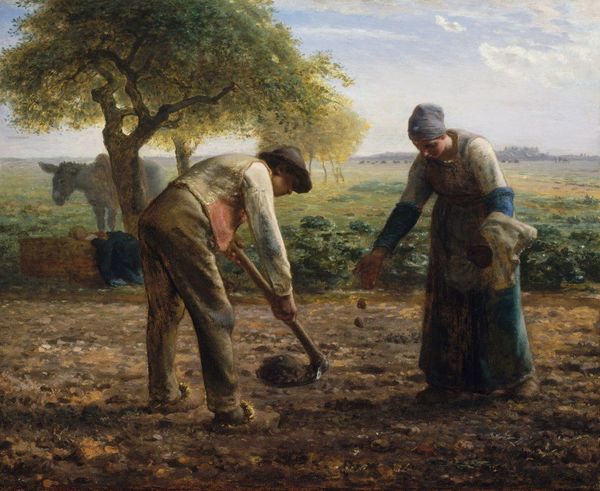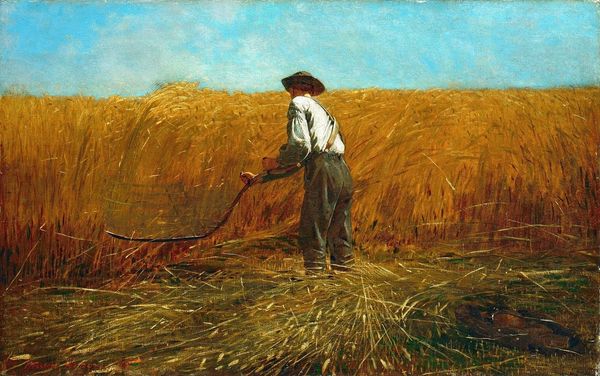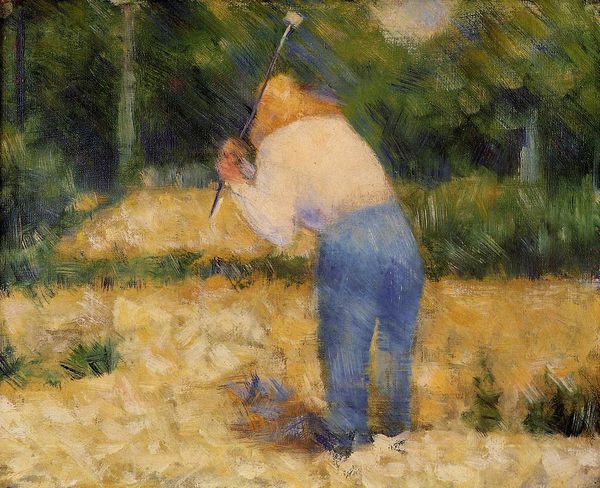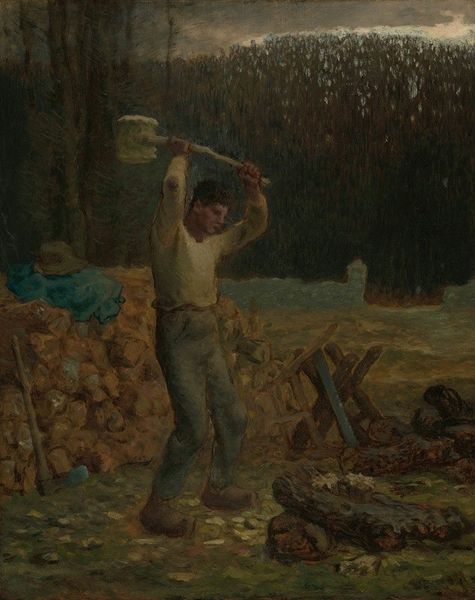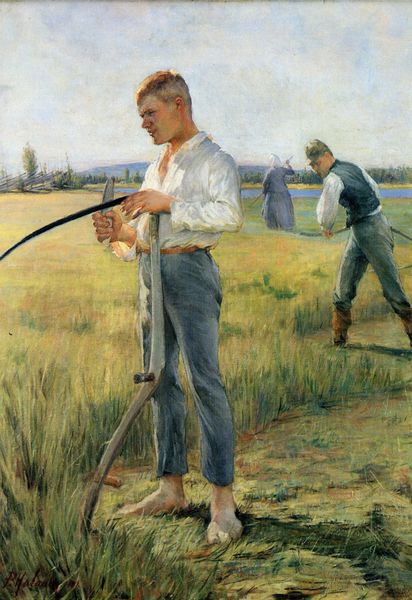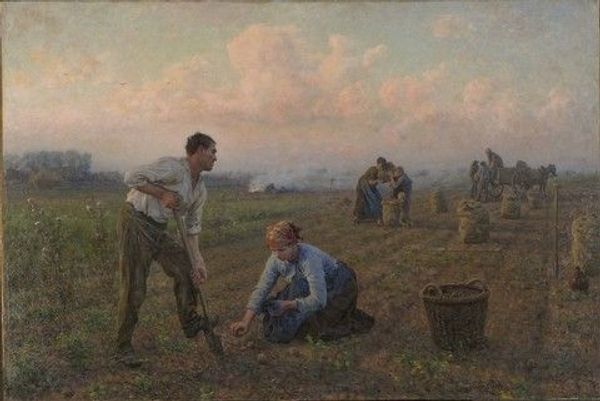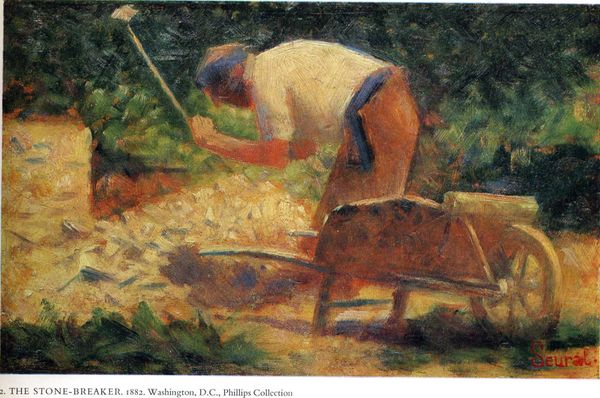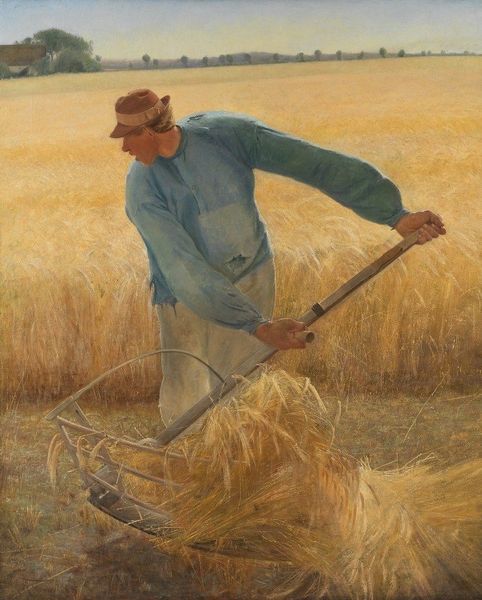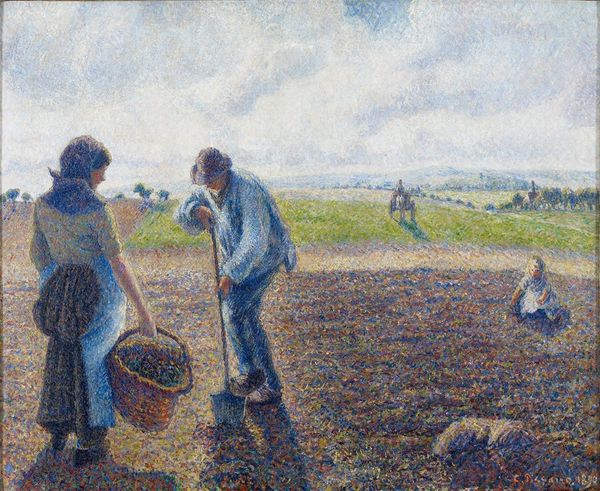
painting, oil-paint
#
gouache
#
tree
#
impressionistic
#
painting
#
oil-paint
#
landscape
#
nature
#
genre-painting
#
realism
Copyright: Public domain
Editor: This is "Mowing Bracken" by Henry Herbert La Thangue, likely an oil painting. It strikes me as a fairly straightforward depiction of rural life, a little idealized maybe, with a worker paused in a field. How do you interpret this work? Curator: At first glance, it's tempting to see it as a celebration of rural life. But I think we need to dig a bit deeper, look at the socio-economic context. Who is this worker, and what does it mean to depict him this way? Consider the late 19th century - shifts in rural labor, land ownership… What might La Thangue be saying, consciously or unconsciously, about class and labor here? Editor: So, less idyllic, maybe? Is there a critical element present in his portrayal of this rural worker? Curator: Precisely. While painted with realism, whose reality are we seeing? Is it a romanticized view for an urban audience, or is it an attempt to engage with the lived experiences of the rural working class? Look at his stance, the details of his clothing. Is it ennobling, or does it reinforce existing power structures by focusing on the 'picturesque' nature of manual labor? How might a Marxist interpretation reshape our reading? Editor: I see what you mean. It's like the artist is presenting a picture of a life, but not necessarily questioning its inherent difficulties or power imbalances. Curator: Exactly. And by not explicitly addressing the challenges and systemic issues of the time, he potentially perpetuates a specific narrative. We must also think of contemporary debates regarding agricultural labor and land rights. Does the artist engage or ignore them? What is emphasized, what is omitted? Editor: This gives me a lot to think about when considering representations of labor. I thought it was beautiful, but it is worth reflecting on what kind of statements that initial assessment overlooks. Curator: Agreed. Art often asks us to question our initial assumptions, and this is an example of a complex visual narrative which invites that kind of deconstruction.
Comments
No comments
Be the first to comment and join the conversation on the ultimate creative platform.
